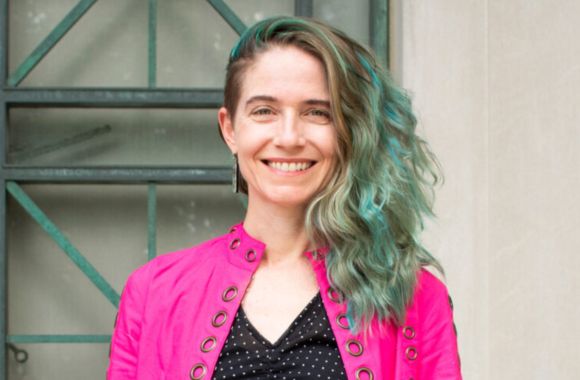
Professor urges universities to fight back against ‘state terrorism’
When Professor Catherine D’Ignazio isn’t running the “Data + Feminism” lab at the Massachusetts Institute of Technology or organizing “reproductive justice hackathons” she is fighting Donald Trump’s “state terrorism.”
The urban studies professor, and “data feminism” scholar, recently explained “how U.S. universities can survive state terrorism” in an essay for Academe Blog.
“What distinguishes state terrorism from other routine uses of force is that the violence is designed to ‘send a message’ —to reverberate out into the population, to engender fear, and to shift behavior,” Professor D’Ignazio (pictured) explains.
“The US government’s detentions of students such as [Tufts University doctoral student Rümeysa] Öztürk constitute a burgeoning form of state terrorism, particularly when considered alongside other acts of political violence and coercion,” she wrote. “These include using taxpayer dollars for deporting undocumented workers—some while they were seeking food outside homeless shelters, dropping their kids off at daycare, or driving to their high school volleyball practice.”
“The Trump administration’s strategy conjoins specific instances of threats and violence with widely reported media representations in order to spread fear,” the professor wrote. “This is what distinguishes the current violence of the state as terrorist. It is not only a judicial project but also a public relations project and a strategic communications project.”
Even “left- and center-leaning” publications like the New York Times play a role in promoting fear, the professor said.
It’s no wonder then that one-third of her paid time goes to fighting “state terrorism.”
“This gives the appearance that state terrorism is working, and in certain ways that might be true,” she wrote. “I would estimate that about a third of my own working hours—hours that professors should be using to advance science and innovation or educate and mentor students—are now consumed with combating the impacts of state terrorism on my university campus: widespread fear, self-censorship, capitulation, and silence.”
In the rest of the essay she gives advice to universities on how they too can fight the terrorism, including speaking up, networking, and donating time and money to mutual aid organizations.
“Surviving state terrorism will not be easy,” however. “During this period, we must remember that the current project is an elaborate exercise in political theater designed to spread fear, isolation, and division.”
“Acts of radical care, everyday courage, and collective action are the most effective antidote to state terrorism.”
MORE: Wagner College agrees to ban men from women’s sports
IMAGE CAPTION AND CREDIT: Massachusetts Institute of Technology Professor Catherine D’Ignazio; MIT
Read More
Like The College Fix on Facebook / Follow us on Twitter


